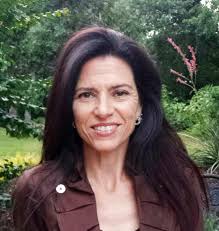 An Interview with Paula Walker, Clinical Pharmacist Baylor, Scott & White Health | Dallas, Texas Tags: Cardiovascular Health, Chronic Illness, Detailing Visits, Elderly Care, Training Tell us a bit about yourself. How did you get into care redesign and transitional care? I grew up in the area of Inman Square Pharmacy in Cambridge, Massachusetts. After graduating from Northeastern University in 1990, I began my career in community pharmacy. Soon after I entered the pharmaceutical industry, I spent many years representing the biological division of Rhone-Poulenc. I continued to keep connected with public health by practicing in the community part time; I’ve also been serving in a family practice clinic for over 8 years now. Three years ago, upon recommendation from our clinic director, I joined The Institute of Chronic Disease and Care Redesign at Baylor Scott and White Health in Dallas. Tell us about the institute. What does your team focus on with regards to providing transitional care? What approach do you take? Our multidisciplinary team focuses on improving outcomes among chronically ill older adults. Our innovative approach includes using advanced technology to identify patients at most risk for readmission. With a focus on heart failure, COPD, and pneumonia, patients are identified and supported as they transition from one level of care to the next. Our transitional care team encourages each specialty to work at the very top of their license to assist patients whose recovery is complicated by cognitive impairment, frailty, and social issues. Our team shares offices together so each discipline is available to all team members at all times. A strong team and constant communication is the key to our success. What does a typical day or week look like for you in this field? How do you incorporate academic detailing techniques into your work? My role is to perform the medication reconciliation on all of my patients and communicate any concerns with the appropriate providers. I attend weekly rounding with my team and need to be able to make and support any medication recommendations. In terms of using academic detailing techniques, our team practices evidence-based medicine in the care and treatment of our population with chronic disease. It’s also key for a pharmacist in this role to be able to communicate to providers quickly and effectively regarding drug selection, dosage, and titration. Learning and practicing the skills required to communicate effectively in this environment is essential. In a typical day I will consult with a geriatric specialist, cardiology, nephrology, APRN, social worker, and corporate administration. That is a lot of communicating! You attended our Academic Detailing Techniques Training a few years back. What parts of the program worked well for you, and what are the most useful resources or information that you’re still using today? I found the skills learned during the NaRCAD training to be useful and confidence building. There is an art to being able to research information then applying it to support a recommendation in a short amount of time. NaRCAD brings together professionals from different disciplines that are focused on improving the communication of science-based information in their practice or facility. It is useful to connect with others that require these skills in their work. The small class size made it very easy to meet all the participants and learn from their experiences. I believe you can never be too experienced, and I constantly learn from the experience of others. What are some future successes you’re looking forward to in your work and in the field in general? As we prepare to expand the Transitional Care Model at Baylor Scott and White Health under the population health infrastructure, I look forward to the pharmacist’s role to expand as well. Our goal of disease management, well above the national standard, will require evidence based medicine and the sharing of clinical information to all members of the care team. I look forward to continuing my relationship with NaRCAD—together we can help each other transform care, resulting in an improvement in the quality of life for our patients. And I’m looking forward to NaRCAD’s 3rd International Conference on Academic Detailing this November in Boston! Biography: Paula Walker, Clinical Pharmacist, joined the Baylor Scott & White Health Transitional Care Team in 2012. Paula is the team pharmacist and oversees all medication reconciliation for their older adult population with heart failure, COPD, and pneumonia. Prior to joining BSW, Paula has worked in community pharmacy, clinic pharmacy (still active), and the pharmaceutical industry. Paula holds BS in Pharmacy from Northeastern University. Comments are closed.
|
Highlighting Best PracticesWe highlight what's working in clinical education through interviews, features, event recaps, and guest blogs, offering clinical educators the chance to share successes and lessons learned from around the country & beyond. Search Archives
|
